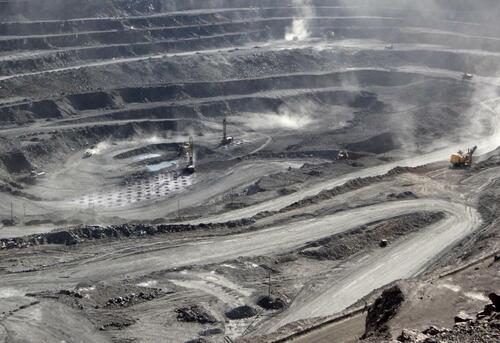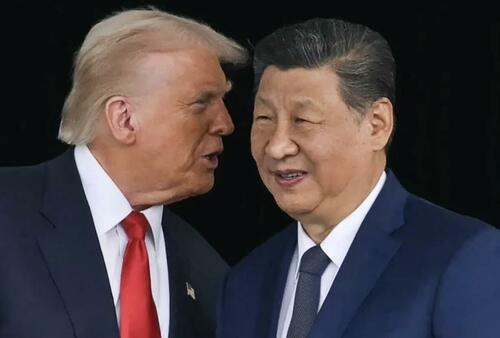China-U.S. Rare Earth Deal “May Have Hit A Snag” As Beijing Reportedly Unlikely To Fully Reverse Restrictions
China is developing a new rare earth licensing system that could speed up exports, though it’s unlikely to fully reverse restrictions as hoped by Washington, according to industry sources cited by Reuters on Friday. It’s a headline that furthers growing doubts about China’s trade deal with the U.S. that we have been writing about for days.
Friday it was reported that the Ministry of Commerce has told some exporters they will eventually be able to apply for streamlined, one-year permits allowing higher export volumes. Companies are preparing documentation, but officials say the process could take months, and many firms have yet to receive formal notice.
Reuters writes that the new regime would simplify approvals compared to the rules introduced in April and expanded in October, which require a license for each shipment and have caused significant delays and shortages. Beijing’s curbs—covering over 90% of the world’s processed rare earths and magnets—have become a key point of leverage in its trade dispute with Washington.
Despite a recent U.S.-China agreement pausing some restrictions for a year, insiders say broader export controls remain in place. General licenses are expected to be harder to obtain for buyers linked to defense or sensitive sectors. Since April, EU firms have filed roughly 2,000 applications, with just over half approved.
Yesterday, Nikkei reported that not only is China making inroads with new export controls, but the question over the old ones still hasn’t been accurately resolved.
Recall, we had speculated about how close the deal could be to collapse as recently as yesterday, and earlier this week we said that it felt like “‘the cracks in this latest trade deal are already starting to show, whether it is Beijing ordering Trump what he can’t talk about, or quietly ring-fencing its domestic data center by banning US Al chips” and further said that “while China granted Trump a 1 year reprieve on rare earths, it is quietly tightening the export noose on other, just as important minerals. According to the Global Times, China has introduced new export controls on silver, antimony, and tungsten.”
We concluded that “the game of export whack-a-mole in the second World Trade War continues: today the US is getting rare earths (at least until Trump has another Truth Social meltdown), but just got stopped out on other, just as important materials. This export control rotation will continue until the day the US is self-sufficient, which however due to the abovementioned environmental limitations, will take a very long time…”
Rabobank added to the skepticism Friday morning: “The China-US deal to ease rare-earth export controls for a year may have hit a snag. China’s regional authorities have reportedly said export controls from April remain in place so there is still a need for special export licenses and intrusive questions.”
They continued: “That’s a week into the one-year Trump-Xi deal. The US also added silver and copper to its critical minerals list, as Trump hosted Central Asian leaders, aiming for their rare earths, as Japan and the US announced they would mine deep-sea rare earths together. Does any of this read like they expect the deal to hold long-term?”
“The Financial Times reported recent US trade deals with ASEAN countries contain ‘poison pills’ which mean they can be cancelled by the White House if any action signatories take with China threatens “essential US interests” or “poses a material threat” to it. Do you think this kind of logic will only apply to those particular counterparties? No: it will apply to everyone who struck a deal,” the note continued.
Tyler Durden
Fri, 11/07/2025 – 13:45ZeroHedge NewsRead More






 R1
R1
 T1
T1


